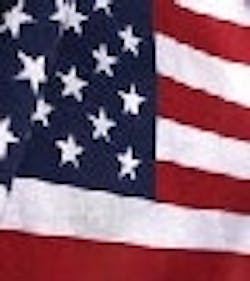Joe Feeley is editor in chief for Control Design and Industrial Networking. Email him at [email protected] or check out his Google+ profile.
On March 7th, evil doers dealt a blow to the American can do spirit. Captain America, the mans man who fought the Nazis in 1941, was taken out by a snipers bullets on the steps of the Manhattan court house.
Now, in truth, I havent read Marvel Comics in a very, very long time, and Im told that the 90-year-old Cap actually was under federal indictment for his role in some sort of superheroes gang war involving the likes of Spiderman and Hercules.
Well, maybe Captain Americas star had lost some of its luster along the way, but he still was hero to many, formidable foe to others, and probably just plain Steve to his mom.
But just like that, they took him out. They also got Superman in DC Comics about 15 years ago. For all I know theyre the ones who killed Kenny too.
Some would lament that this is yet another metaphor for the continuing unraveling of the fabric of America itself.
Im not so sure about that bleak outlook, but I did find a speeding-bullet parallel thought with U.S. manufacturing that leads back to our annual Innovators Award winners, featured in Jim Montagues cover story.
When I started working in U.S. manufacturing in the 70s, the scope of its output still was unmatched in both heavy and emerging technology industries. The U.S. owned the steel-making auto industries, it owned the semiconductor industry, and while certain segments such as textiles, clothing, and shoe making were irretrievably gone, many believed the Europeans and Asians were a long way from catching up in the big markets.
Imagine how wide that gap must have seemed in the '50s and '60s as those continents recovered from WWII.
But arrogance coupled with ignorance was, and clearly still is, a fatal combination. The U.S. manufacturing super hero persona has taken a steady hit in those critical industries for 20 years now.
This isnt about the value of a globalized, flat-world economy. This is more about losing the will to be the best or making a commitment to improve, especially when faced with real, emerging competition.
The luster came off the U.S. manufacturing star when, with few exceptions, it convinced itself quality didnt matter and brand loyalty was so strong that competitor super heroes would never change our affinity for U.S. products. And in many realmseven in this countryU.S. manufacturing became, as it seems Captain America might have become, an anti-hero of sorts.
As a result, were in our own version of a superhero gang war for a piece of the global action.
Now, Im also told that Superman re-emerged in the pages of DC Comics some time later. Thats what can happen to U.S. manufacturing if enough of it imitates the actions of the companies we recognize for our Innovator Awards.
It might be a stretch to call them emerging superheroes of Machine Builder Nation, but their goals and aspirations for excellence and customer satisfaction led to decisions and actions that have made the quality of U.S. manufacturing a little bit better as a whole. Earth shaking? Maybe not. But its for sure a step in the right direction.
This intends no disrespect to non-U.S. companies. Youll notice that much of the automation and controls used by our innovators originates in Europe.
No, this is a reminder to those manufacturers that dont yet embrace the pursuit of excellence and customer care. Its also an invitation to those companies that turned off this path to make a course correction.
Its sort of its own version of truth, justice, and, for sure, the American way.


